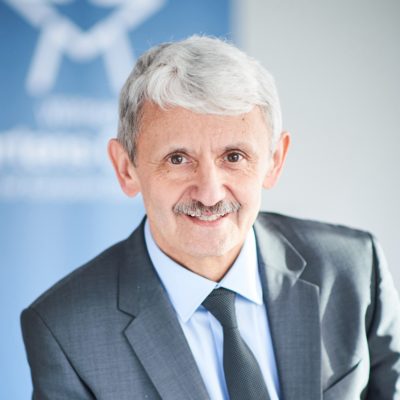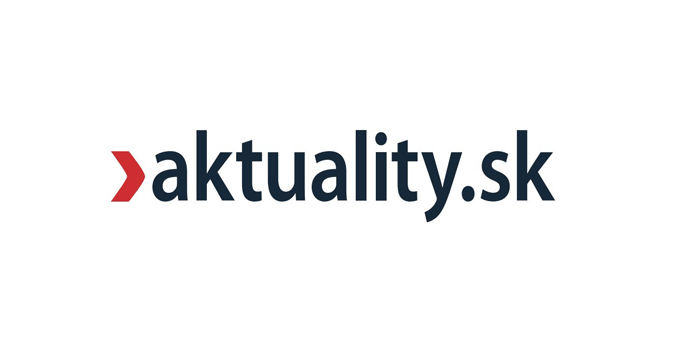The Kremlin and its Dangerous Puppets
16 April 2021
This op-ed was initially published in Slovak. An English translation is provided and the link to the original article is found below.
Slovak politics have been embroiled in strange relations which are raising a number of questions, both at home and abroad. These relations can be framed by the Kremlin’s lines of force – Ukraine – Orbán – Sputnik – Matovič (until recently the Prime Minister of the Slovak Republic).
Is it possible to disentangle this web? Let’s try to jump right in medias res – the Kremlin and its interests. Primarily, it’s the massive movement of Russian troops towards the Ukrainian border the has been catching the whole world’s attention these days.
We don’t know what’s going on in the Donbas today. We know, however, what is essential: Russia and Ukraine have conflicting interests. While Russia’s interest is the widest possible autonomy for Luhansk and Donetsk, Ukraine wants to gain control over the two separatist republics, legislatively and administratively. Russia is cementing its influence in Crimea, while Ukraine has no intention of giving up the peninsula.
There are various reasons for massing Russian troops along the Ukrainian border: the upcoming parliamentary elections in Russia and Putin’s declining popularity on the one hand, but also Ukraine’s efforts to exploit the clearly pro-Ukrainian new US administration and weaken the separatists in every possible way, on the other.
Thus, we don’t know whether the movements of Russian troops towards the Ukrainian border are more of an action or a reaction.
What stance should Slovakia and other EU countries take towards Russo-Ukrainian relations? In my view, it is quite clear: EU countries should take the side of Ukraine. For two reasons. First, Ukraine is in the right. Every country has the right to defend its sovereignty and territorial integrity. In the dispute between the Catalan and Spanish governments, we stood united on the side of Madrid. Incidentally, in the case of Luhansk and Donetsk, there can be no question of a nation’s right to self-determination, because the Russians do have their own state. The second reason why we should support Ukraine is the fact that Ukraine does not wage a hybrid war or disinformation campaign against the EU. Just the opposite, Ukraine wants to integrate with the West. Thus, from our perspective, Kremlin politics today are reminiscent of a threat, while Ukraine is clearly our ally.
Is this stance a priori directed against Russia? Absolutely not. However, if the Russian government attempts to weaken the EU, to cause internal cracks within the Union, if it is waging a disinformation campaign against EU countries, we have to stand up to it. Russia ignores or humiliates EU institutions (e.g., Josep Borrell’s recent visit to Moscow or the expulsion of three EU member states diplomat) or, alternatively, lures selected EU member states, especially when the privileged treatment of states leads to internal disputes within the Union. The Kremlin’s policy towards the EU is that of divide et impera; not to mention clear military provocations in the Baltic Sea, the annexation of Crimea, the frozen conflict in Moldova, or the hybrid war against Ukraine.
A sensitive question these days is also whether EU countries should support Ukraine’s NATO membership? I believe that, in principle, they should, but on the condition of maximum compatibility of Ukraine with NATO countries at the time of its NATO accession. This means that NATO membership should not be open for a country which is at war with another. Ukraine must not see its accession to NATO as a tool for subsequently defeating Russia and gaining predominance in the Donbas region, or possibly aiming for the return of Crimea. The Donbas conflict must be resolved by Ukraine itself, with the comprehensive but indirect support of the West.
In what way you ask? Specifically, through pursuing a reform policy that will lead to raising Ukrainian living standards. This, in turn, should increase the support of Ukrainian citizens for NATO accession. This must be said loud and clear to Ukrainians. To politicians and citizens alike. No unrealistic expectations should be raised, no shortcuts should be offered to Ukraine. Just the opposite – Ukrainians should be helped to understand that this is a “long distance track” and that they have to run it on their own. We can act as “pace makers”, mix energy drinks for them, accompany them on the track, cheer for them, but the Ukrainians must run on their own. Just between us: Crimea was lost to Ukraine mainly because of Yanukovych. He flirted with both sides, playing a deception game with the Kremlin and with his own citizens. And he provoked both: Maidan, as well as the Russian bear.
In such a context, how can the actions of the former Slovak prime minister and his bizarre purchase of the Sputnik vaccine (while lacking approval from the EMA) be perceived? And his next step, which was to ask the Hungarian competent authority to approve that vaccine? His actions were, at best, totally amateurish. Matovič seems not to realise (as, unfortunately, some other leaders in the EU do as well) that the Kremlin is using Sputnik to play its power game aimed at the disintegration of the EU. But, first and foremost, Matovič’s actions are harmful and even dangerous. They contribute to what Viktor Orbán has been doing shamelessly and openly for several years – to permanently weaken the EU. I don’t know what the national interest of Hungary is. I am however certain that the highest national interest of the Slovak Republic is a strong, united, resilient and globally competitive EU. Now is the time to wage the fight for such an EU.




